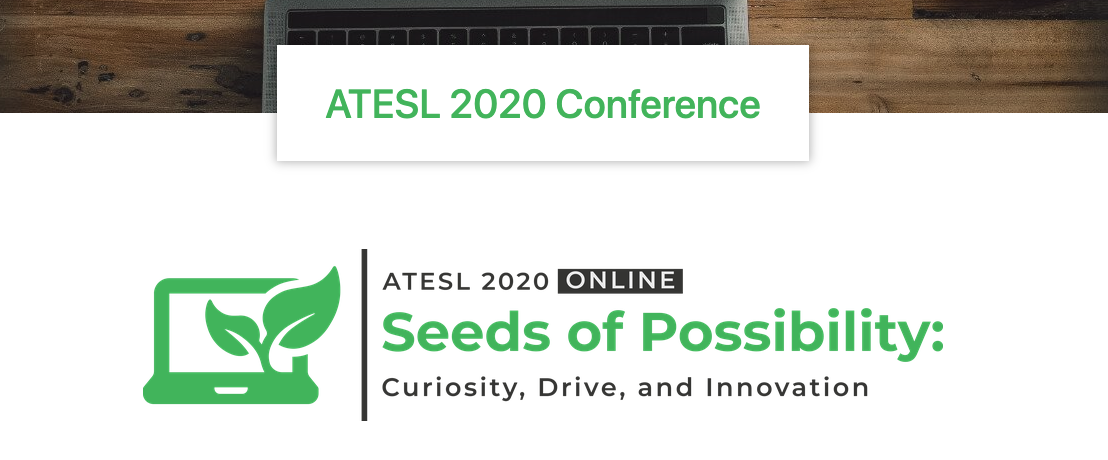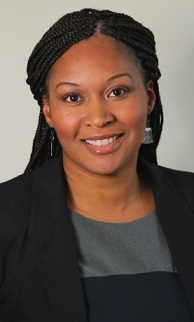
Photo by Canva Studio on Pexels.com
Abstract
In this post I explore what shadow courses (also known as ‘parallel courses’) are, how they operate, who offers them, and who takes them. I further explore ethical issues related to shadow courses including misrepresentation of the legitimacy of the course, copyright infringement, interference with learning expectations, and potential illegal activity. I conclude with a call to action for further research to gather empirical evidence about the impact of shadow courses on post-secondary education.
Keywords: Shadow courses, parallel courses, higher education, post-secondary, international students, ESL, English as a Second Language, EAL, English as an Additional Language
Background
I first heard the term shadow course at the Canadian Consortium Day of the International Center for Academic Integrity (ICAI) annual conference in 2018 in Richmond, VA, USA. Colleagues from Ontario were talking about private companies who offered post-secondary courses for their students in other languages. Since then, there has been little written about shadow courses, even though they have continued to proliferate to the extent that they are now widespread across Canada, and other countries as well.
What are Shadow Courses?
Shadow courses, also called parallel courses, are offered by commercial third-parties who have no official relationship with a post-secondary institution. They sometimes operate as private tutoring companies. A shadow course is a clone of an official university or college course offered in a language other than English; they exist so students can learn the material for their post-secondary courses in their preferred language (e.g., Mandarin).
Shadow courses might be offered with the exact same name and course number as those of a legitimate higher education institution, with course materials that follow the week-by-week schedule of the official course, including offering students previews of assignments, quizzes, or final exams. These course materials can be acquired from students registered in the official institutional course or from teaching assistants who can be lured into supplying these materials to the company in exchange for a fee.
Students register in a shadow course and then proceed to take the entire course in their preferred language, following the exact syllabus as the official version of the course. Shadow courses are not taught by university faculty, but by individuals hired by the private tutoring companies who may or may not have academic credentials that qualify them to teach the course material. Students submit their assignments and take tests and exams on campus, but instead of actually attending classes at the university or college, they instead they turn to the shadow course where they can attend lectures in their preferred language.
Who Offers Shadow Courses?
Shadow courses are offered by unauthorized commercial third-party enterprises who often have no official affiliation or relationship with a legitimate higher education institution.
These companies may also offer additional services such as academic consulting, advising, or tutoring. In some cases, such companies may also offer additional (and sometimes illegal) services, such as hiring an individual to sit an exam in a student’s place. Such individuals might be referred to as impersonators, proxy students, or stand-ins. The use of exam impersonators has been a growing concern in academia and industry for a number of years now (Harper et al., 2020; Mitchell, 2014; Theophille, & King, 2019).
The size and scope of the industry remains unknown. Post-secondary educators and higher education staff have reported the existence of shadow courses in Canada in Toronto, Calgary, and Vancouver, though they are likely offered across the country.
Who Takes Shadow Courses?
Students for whom English is an additional language take shadow courses. These students may have insufficient English language proficiency to complete their academic work in English, or they may simply prefer to learn in their first language because there is less cognitive load than learning in an additional language.
Key Ethical Issues
Companies offering shadow courses may view themselves as being benevolent. They may claim that they are helping students succeed by offering courses in students’ preferred language and supporting them in ways the official institution does not.
Although the intentions of these companies may seem benevolent or helpful at first glance, there are a number of ethical issues to consider.
Misrepresentation
Third companies that offer shadow courses are not endorsed by or affiliated with the institution where students are registered. They may market themselves as having an official relationship with the school when that is not the case. Some tutoring companies misrepresent their relationship with the learning institution or the legitimacy of the courses they offer. Shadow courses are usually not approved or endorsed by legitimate post-secondary institutions.
Some companies will offer courses rent rooms on campus so they can offer on-site lectures. Even if institutions are aware of such room rentals, it can be problematic to cancel room-rentals once a contract has been signed. Few institutions have policies that explicitly prohibit outside tutoring companies or other educational businesses from renting rooms on campus. This remains a loophole at some institutions that can provide opportunities to third-party operators to offer shadow courses right on campus.
Copyright Infringement
In order to teach the material companies offering shadow courses and the tutors who teach them may be violating copyright laws, by using materials for which they do not own the rights. The issue of illicit and illegal file-sharing is one of growing importance in the academic integrity community (Rogerson & Basanta, 2016, Seeland et al., 2020).
Interference with Learning Expectations
There is an implicit, and often unspoken expectation at learning institutions that students will learn the language of the discipline they are studying through their course work. Students learn vocabulary, terms and the discourse of the discipline in their lectures and classes. For students for whom English is an additional language, there is an expectation that they will continue to improve their language proficiency throughout their student experience. By taking shadow courses, students miss the opportunity to improve their English in an authentic learning environment. By circumventing the official lectures and opting instead for a shadow course, students may find themselves perpetually behind in terms of improving their English language skills.
Potential Illegal Activity
It may not be illegal for students to take courses in their preferred language instead of the official language of instruction; however, if students then go on to hire an impersonator to take examinations on their behalf, they may be engaging in an act of criminal fraud. In Canada, there are documented cases of examination impersonators being arrested in Ontario (Caldwell, 2014; Prisiajny, & Lai, 2015), Quebec (Bernstien, 2016; Meagher, 2016), and British Columbia (Bains, 2019; Wadhwani, 2019). Although the connection between these cases and commercial third-party companies was not established, they nevertheless captured the attention of the media (Eaton, 2020), and created a public relations crisis for the institutions named.
Concluding Remarks
There is enough informal and anecdotal evidence to show that commercial third parties are operating in a systematic manner to offer shadow academic courses in major Canadian centres across the country. This is not an issue that pertains to one particular school, but is an issue of importance to higher education in general.
The question of how to address these companies is a complex one that requires input from educational stakeholders involved at the institutional level, as well as across provincial, national, and even global networks. At this point, there is little empirical data to help us understand the impact of shadow courses on students or the legitimate learning institution where they are enrolled. There is an immediate and urgent need for more research, particularly in Canada, to understand the impact of shadow courses in higher education.
References
Bains, M. (2019). Woman allegedly paid to take exam arrested at SFU. CBC News. Retrieved from https://www.cbc.ca/news/canada/british-columbia/burnaby-rcmp-investigate-after-sfu-catches-alleged-paid-test-taker-1.5400400
Bernstien, J. (2016). Concordia student and tutor face criminal charges for allegedly cheating on exam. CBC News. Retrieved from https://www.cbc.ca/news/canada/montreal/concordia-student-charged-for-cheating-1.3815520
Caldwell, B. (2014). Alleged cheats arrested over math exam at University of Waterloo. The Record. Retrieved from https://www.therecord.com/news-story/5210859-alleged-cheats-arrested-over-math-exam-at-university-of-waterloo/
Eaton, S. E. (2020). An Inquiry into Major Academic Integrity Violations in Canada: 2010-2019. Retrieved from http://hdl.handle.net/1880/111483
Harper, R., Bretag, T., & Rundle, K. (2020). Detecting contract cheating: Examining the role of assessment type. Higher Education Research & Development, 1-16. doi:10.1080/07294360.2020.1724899
Meagher, J. (2016, October 21). Concordia student, tutor face criminal charges in exam cheating case. Montreal Gazette. Retrieved from https://montrealgazette.com/news/local-news/concordia-student-tutor-face-criminal-charges-in-exam-cheating-case
Mitchell, R. L. (2014). Pirates, cheats and IT certs. ComputerWorld. Retrieved from https://www.computerworld.com/article/2490886/it-skills-training-pirates-cheats-and-it-certs.html
Prisiajny, T., & Lai, C. (2015, January 7). York grad student charged after impersonating Waterloo student math exam. Excalibur. Retrieved from https://excal.on.ca/york-grad-student-charged-after-impersonating-waterloo-student-math-exam/
Rogerson, A. M., & Basanta, G. (2016). Peer-to-peer file sharing and academic integrity in the Internet age. In T. Bretag (Ed.), Handbook of Academic Integrity (pp. 273-285). Singapore: Springer.
Seeland, J., Stoesz, B. M., & Vogt, L. (2020). Preventing online shopping for completed assessments: Protecting students by blocking access to contract cheating websites on institutional networks. Canadian Perspectives on Academic Integrity, 3(1). doi:https://doi.org/10.11575/cpai.v3i1.70256
Theophille, V., & King, A. (2019). Case # 9: Exam Impersonation. Retrieved from https://shared.uoit.ca/shared/department/academic-integrity/documents/case-study-9—exam-impersonation.pdf
Wadhwani, A. (2019, December 18). Student, impersonator arrested for alleged cheating during final exams at SFU. Victoria news. Retrieved from https://www.vicnews.com/news/student-impersonator-arrested-for-alleged-cheating-during-final-exams-at-sfu/
________
Share or Tweet this: Shadow Courses and their Impact on Academic Integrity https://drsaraheaton.wordpress.com/2020/10/26/shadow-courses-and-their-impact-on-academic-integrity/
This blog has had over 2 million views thanks to readers like you. If you enjoyed this post, please “like” it or share it on social media. Thanks!
Sarah Elaine Eaton, PhD, is an Associate Professor the Werklund School of Education, and the Educational Leader in Residence, Academic Integrity, University of Calgary, Canada. Opinions are my own and do not represent those of the University of Calgary.



 Posted by Sarah Elaine Eaton, Ph.D.
Posted by Sarah Elaine Eaton, Ph.D.  The week of October 18-23, 2020 marks
The week of October 18-23, 2020 marks 
 I’m excited to partner with colleagues from Norquest College and the
I’m excited to partner with colleagues from Norquest College and the  This session will review inequitable practices related to academic integrity. These practices threaten to undermine the vital work of celebrating and affirming a diverse academic community. This presentation will consider the ramifications for students, teachers, and researchers, and offer research-based solutions to refine current approaches to teaching and upholding academic integrity.
This session will review inequitable practices related to academic integrity. These practices threaten to undermine the vital work of celebrating and affirming a diverse academic community. This presentation will consider the ramifications for students, teachers, and researchers, and offer research-based solutions to refine current approaches to teaching and upholding academic integrity.


You must be logged in to post a comment.